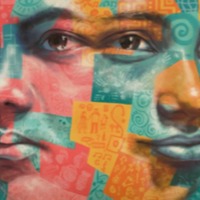There are an estimated 133,000 people living in modern slavery in Ghana (GSI 2018). Ghana remains a source, transit, and destination country for men, women, and children subjected to forced labor and sex trafficking. Ghanaian boys and girls are subjected to forced labor within the country in fishing, domestic service, street hawking, begging, portering, artisanal gold mining, quarrying, herding, and agriculture, including cocoa. Research focused on the fishing industry on Lake Volta indicated that more than half of the children working on and around the lake were born in other communities and many of these children are subjected to forced labor; not allowed to attend school; given inadequate housing and clothing; and are controlled by fishermen through intimidation, violence, and limiting access to food. Boys as young as five years old are forced to work in hazardous conditions, including deep diving, and many suffer waterborne infections. A study of the prevalence of child trafficking in selected communities in the Volta and Central Regions indicated that children from nearly one-third of the 1,621 households surveyed had been subjected to trafficking, primarily in fishing and domestic servitude.
Adjua was forced to work fishing on Lake Volta in Ghana when she was a child. She tells of how it was not just forced labour that she had to endure but was subjected to sexual assault by her traffickers husband.










